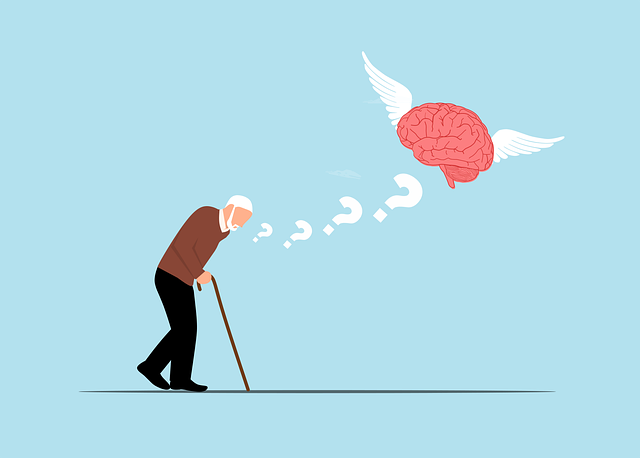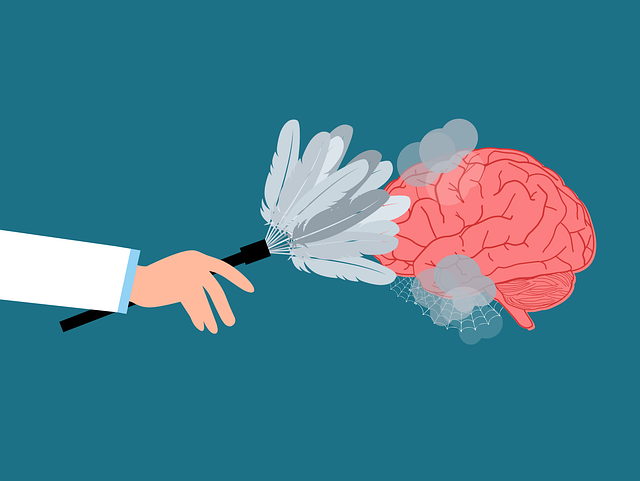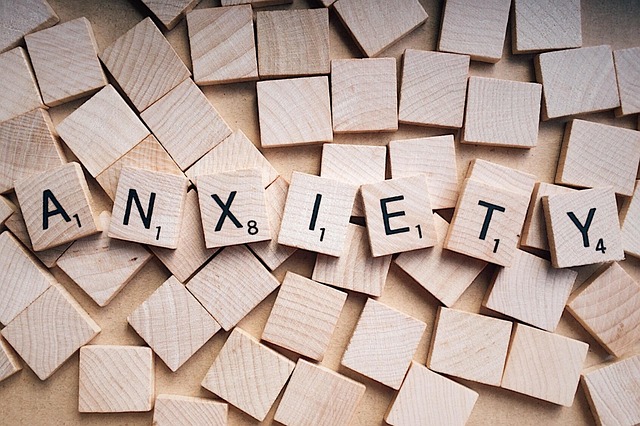Mental health professionals play a vital role in empowering elderly clients by addressing unique risks associated with aging, such as cognitive decline, physical health issues, and social isolation. By focusing on therapy for elders self-esteem, therapists can enhance resilience and improve mental wellness outcomes. This involves tailored interventions, self-care practices, cultural sensitivity, and innovative techniques like storytelling or music therapy from wellness podcasts. Comprehensive risk management planning, including trauma support services, creates a safe environment, fosters personal growth, and encourages active participation in therapy for seniors. Regular monitoring, feedback integration, and adaptive strategies ensure evidence-based approaches aligned with best practices for therapy for elders self-esteem.
Mental health professionals working with elderly clients face unique challenges, demanding a nuanced approach to risk management. This article explores strategies tailored to navigate complexities in therapy for seniors, focusing on understanding and mitigating risks while fostering a crucial aspect often overlooked: self-esteem. We delve into comprehensive planning methods, emphasizing their implementation and continuous evaluation for optimal client care. By integrating these insights, professionals can enhance the effectiveness of therapy for elders, nurturing their self-worth and overall well-being.
- Understanding Risk in Mental Health Practice with Elderly Clients
- Self-Esteem and Its Role in Effective Therapy for Seniors
- Strategies for Comprehensive Risk Management Planning
- Implementation and Continuous Evaluation for Optimal Client Care
Understanding Risk in Mental Health Practice with Elderly Clients

Understanding risk is paramount in mental health practice with elderly clients. This demographic often faces unique challenges that can significantly impact their emotional well-being and overall therapy outcomes. Factors such as age-related cognitive decline, physical health issues, social isolation, and life transitions can contribute to heightened vulnerability. For instance, the process of adjusting to aging or dealing with the loss of loved ones may trigger feelings of depression, anxiety, and low self-esteem. As mental health professionals, recognizing these potential risks is crucial for tailoring effective therapy strategies.
By understanding the emotional healing processes specific to elders, practitioners can implement preventive measures like burnout prevention techniques and stress management programs. These initiatives ensure that both the client’s psychological and physical needs are addressed. Moreover, enhancing self-esteem through therapeutic interventions becomes a key component in empowering elderly individuals to navigate their mental health journeys with resilience and improved quality of life.
Self-Esteem and Its Role in Effective Therapy for Seniors

For mental health professionals working with seniors, cultivating and fostering strong self-esteem is a cornerstone of effective therapy. As individuals age, they may face various challenges that can impact their sense of worth and confidence—from physical changes to social isolation. Building a therapeutic relationship centered on respect, empathy, and genuine interest can significantly boost the senior’s self-esteem. This becomes a powerful tool in facilitating open communication, encouraging active participation in therapy, and promoting positive mental health outcomes.
Self-care practices, including maintaining cultural sensitivity in mental healthcare practice, play a crucial role in supporting both the therapist and the elderly client. By modeling healthy coping mechanisms and providing a safe, non-judgmental space, therapists empower seniors to develop resilience and a more positive self-perception. Additionally, integrating elements from a mental wellness podcast series production can offer creative ways to engage clients, such as using storytelling or music therapy, further enhancing the therapeutic process and contributing to improved self-esteem in older adults.
Strategies for Comprehensive Risk Management Planning

Comprehensive risk management planning is paramount for mental health professionals to ensure a safe and supportive environment for their clients, especially when working with vulnerable populations like elders. This involves a multi-faceted approach that incorporates various strategies to mitigate potential risks and promote positive outcomes. One key strategy is integrating self-esteem improvement techniques into therapy sessions, which can empower elders to navigate challenges with enhanced resilience. By fostering a sense of self-worth, professionals can help clients build confidence in their ability to manage stress and adversity.
Additionally, risk management planning should include trauma support services tailored to the unique needs of older adults. Given that many elders may have experienced significant life traumas, offering specialized interventions can significantly impact their overall well-being. Incorporating evidence-based practices and adaptive techniques allows professionals to address complex emotional issues while fostering a sense of safety and security. This holistic approach not only enhances the effectiveness of therapy but also cultivates an environment where self-esteem flourishes, enabling elders to embrace personal growth and healing.
Implementation and Continuous Evaluation for Optimal Client Care

Effective risk management planning for mental health professionals involves a dynamic process of implementation and continuous evaluation. Once strategies are put in place, regular assessment is crucial to ensure their optimal effectiveness. This includes ongoing monitoring of client outcomes, feedback from both clients and fellow professionals, and adaptive adjustments as needed. By integrating compassion cultivation practices into therapeutic approaches, mental health professionals can enhance self-esteem and resilience among elders, a key aspect of overall mental wellness. Regularly reviewing and updating risk assessment protocols ensures that the care provided remains current, evidence-based, and aligned with best practices.
Moreover, encouraging clients to engage in mental wellness journaling exercises can offer valuable insights into their emotional states and progress. This practice not only supports self-reflection but also serves as a powerful tool for professionals to track changes over time. Such evaluations contribute to a comprehensive understanding of client needs, allowing for more personalized and effective therapy. In turn, this enhances the overall quality of care, particularly when tailored to the unique challenges faced by elders seeking therapy for their mental health concerns.
Effective risk management planning is crucial for mental health professionals working with elderly clients, integrating strategies that enhance self-esteem and overall therapy outcomes. By understanding unique risks, such as cognitive decline and social isolation, and employing comprehensive approaches, practitioners can create tailored safety nets. Continuous evaluation ensures these plans remain dynamic and responsive to seniors’ evolving needs. This holistic strategy not only minimizes potential hazards but also optimizes client care in the complex landscape of elderly mental health therapy.









